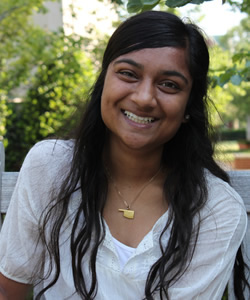In preparation for beginning medical school this fall, I have spent my summer reflecting on why it is that I am choosing to endure four years of intensive study followed by three to seven years of further training, acquiring thousands of dollars in student loan debt, and becoming a doctor who is expected to know the answers and give her life to her patients. Although this is a somewhat pessimistic way of looking at a life in medicine, it is the response I have received from many when sharing my future plans. Going into medicine is scary for many reasons but particularly because so much is out of our control. Healthcare is changing and by the time I am finished with my training our health care system will be starkly different from what it is today – but that is an amazing thing.
Although it has been politically polarizing and a point of contention, the debate surrounding the Affordable Care Act shows that democracy is alive and although the legislation may not be perfect, it makes an important statement: health care is a human right. However this has been overshadowed by antagonism, poor leadership, and unsubstantiated rhetoric that stifles conversations about the compassionate care that we all want and deserve. There is fear on both sides over posing genuine questions, engaging in intellectual debate, and sharing civil inquiry on the health of our people and our democracy. Fear that is stopping people from getting the treatments they need to live and fear that is stopping doctors from helping to create a healthier America.
The beautiful thing about medicine is that at its core, it transcends all barriers: political, religious, socioeconomic, lingual, and geographical. People hurt regardless of their race, religion, or creed and disease attacks without prejudice. I have been a part of many experiences where doctors of different cultural backgrounds who may not even share a language have worked together to successfully treat a patient. It is easy to collaborate when your focus is saving a life; nothing else matters but finding a way to stop disease. But why does this not happen elsewhere? Perhaps if we paused to remember that at the center of these issues lie living, breathing people with emotions, families, hopes, and dreams just like ourselves then we can look past the rhetoric, legislation, and headlines.
This is where our generation can make a difference and change the conversation. We have to remember that at the heart of politics are people. As many of the other fellows have mentioned and the survey results show, we are the most educated, aware, and passionate generation ever. Although we may not fit a mold and tend to prefer to live in the gray areas, we understand that we have a duty to make a difference. We understand that economic disparity is a major issue and that it particularly affects health. We genuinely care about the plight of others and know that it is up to us to make a difference. As a future physician, I know that I have an obligation to cure disease but also to fight injustice. Once I receive my white coat, I am placed in a position of privilege and have the unique opportunity and responsibility to live a life bound up in others’ and in science and the chaotic linking between the two. But it’s not just physicians who are armed with this duty, we all are. Our generation must rise up and fight unapologetically for the right to health care (a human right) and more than that, speak on the absolute unacceptability of poverty, racism, and the many other shadows of life that affect so many Americans and eventually lead to poor health.
The changes to health care in America must do more than heal disease; we must use this opportunity to repair our idea of an inclusive society. As Jelani comments on
in his recent post, “We the People” refers to all people and all Americans. Human rights belong to all people and do not have racial, economic, or cultural prejudice just as disease doesn’t discriminate. Millennials must ensure that we take this opportunity to restore our country’s morality and remember our common humanity. Everyone has a right to healthcare and our generation has the important opportunity to push towards a more compassionate, inclusive, and engaged society. We can and will make a difference; we just have to rise to the occasion.

